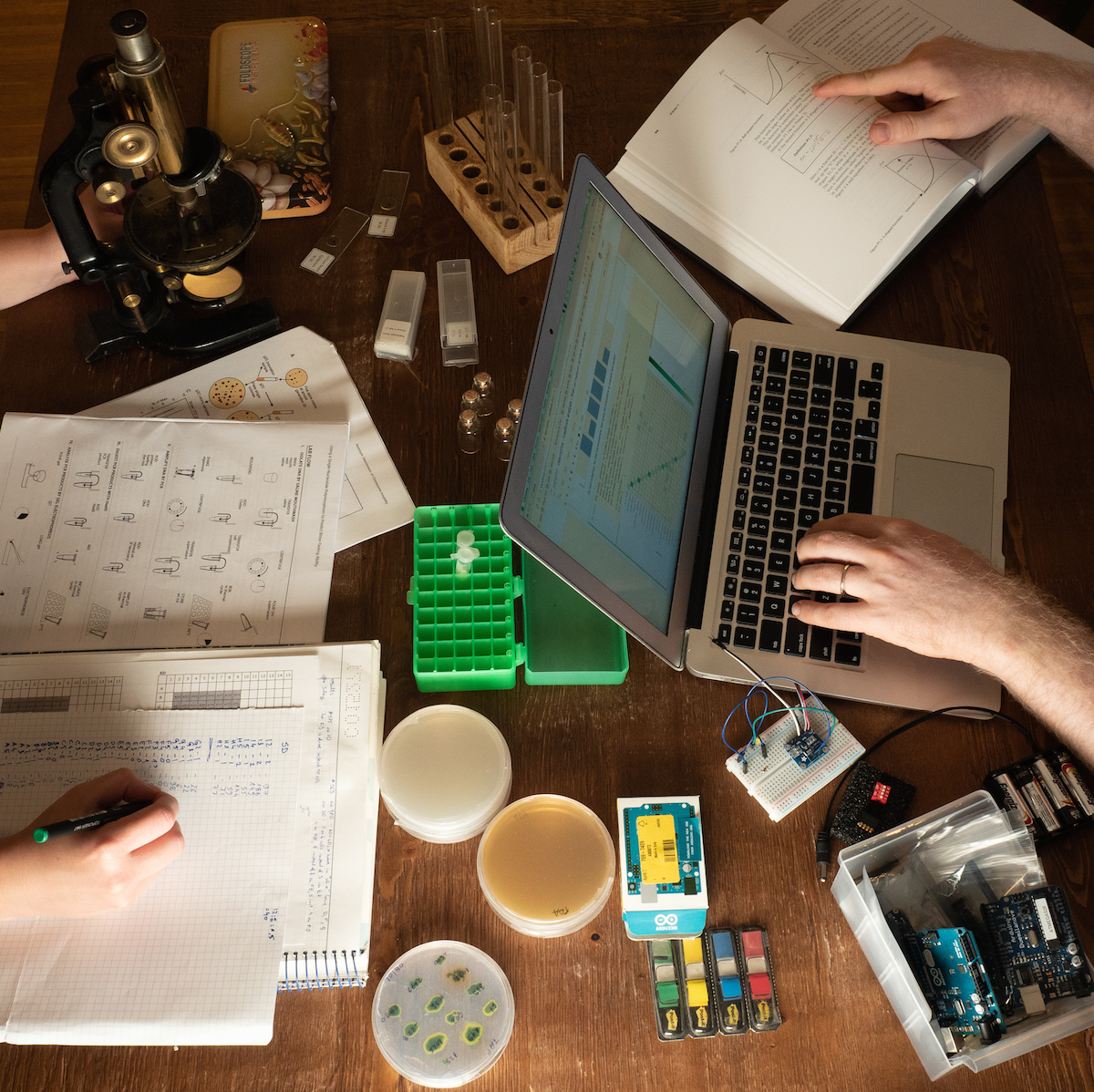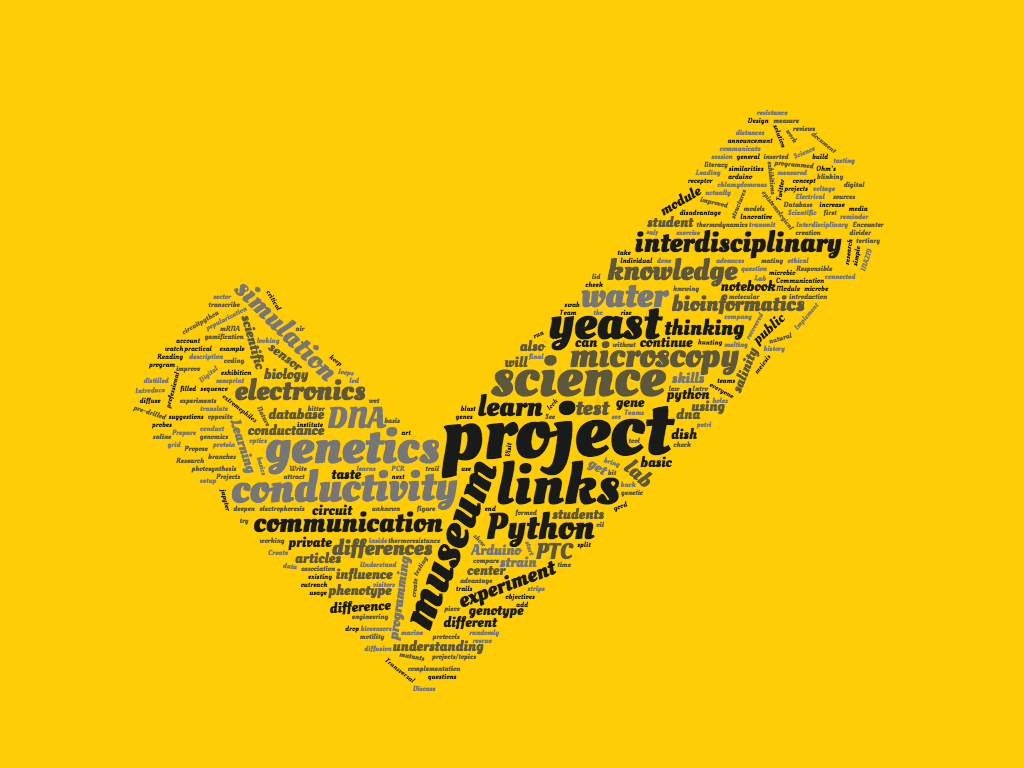
Leading questions:
What is interdisciplinary science? How do we bring science to everyone?
Research skills
- Interdisciplinary thinking
- Scientific communication
- Database creation and usage
- Reading and understanding articles
- Lab notebook
- Responsible conduct in science
Transversal skills
- Digital literacy
- Communication
- Learning how to learn and transmit knowledge
- Innovative and critical thinking
Learning objectives
- Understand and apply basic concepts of programming with Python
- Create simple electronic circuits using Arduino
- Understand the difference between research articles, reviews ansd tertiary sources of knowledge
- Discuss the epistemological, practical and ethical similarities and differences between experiments and models
- Implement and keep a lab notebook during wet lab projects
- Create a professional Twitter account and communicate about science
- Propose interdisciplinary suggestions to improve museum exhibitions
- Prepare a scientific communication announcement for general public
Pedagogical approach
- Learning by doing
- Project-based learning
- Learner-centered design, personalised learning
- Interdisciplinary approach and design thinking
- Peer-2-peer and self-assessments using real-time and online feedback forms
- Intergenerational teaching and learning
Teaching tools
- Online lessons (eLearning) + real-time lectures = hybrid courses
- Personalised tutoring
- Individual and team projects in the field and in the lab
- Programming and hacking, using Python and Arduino
- Social media science communication, using Twitter and blogging
